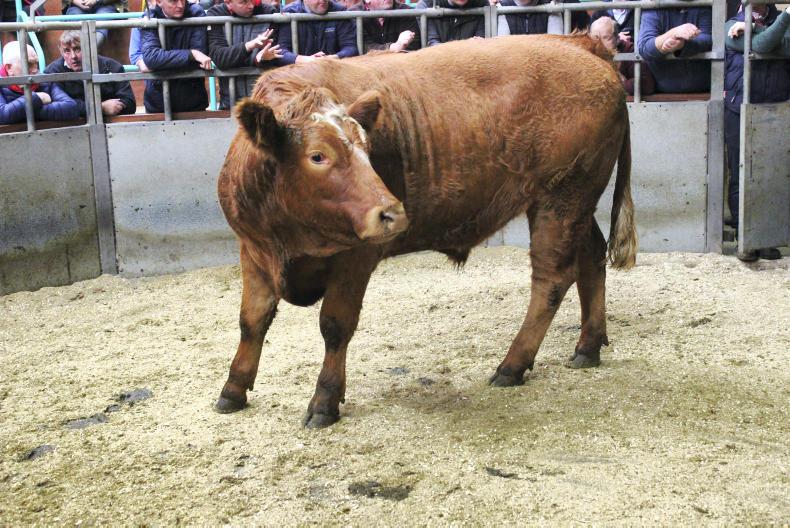Supplies of cattle finished off grass remain high, allowing processors to keep beef prices steady this week.
With more cattle on offer, farmers are generally facing a delay of seven to 10 days to get animals slaughtered.
Deals on price are limited to larger and more specialist finishers killing cattle on a weekly basis.
That being said, there are farmers reporting there is room to bargain for an improved price on prime steers and heifers meeting market specifications on conformation and carcase weight.
Plainer cattle, especially lower-grading animals bred from dairy herds, and young bulls are in lower demand.
As such, farmers have found it much more difficult to negotiate on price for these animals.
Several plants have reduced base quotes by 2p/kg this week. This leaves the top quote for U-3 grading steers on 352p/kg, with U3 heifers on 354p/kg.
Farmers report that cattle are moving at 356p/kg to 358p/kg for in-spec animals, with more regular sellers continuing to secure 360p to 362p/kg at the upper end of the market. Young bulls are moving at prices much closer to base price.
While processors would like to reduce prices further, there is strong demand for cattle in Britain and local plants are bridging this supply gap. This is keeping a floor under the local cattle trade at a time when supplies are plentiful.
Last week, the average price paid on steers and heifers was down 0.5p/kg to 352.7p/kg. The average price paid on U3 steers was down 1.3p to 359.2p/kg, with U3 heifers static on an average of 365.1p/kg. Slaughter cattle imported from Ireland increased to 390 head, while 82 cattle were exported from NI to Britain for slaughter.
Cows
The availability of cows has increased, leading processors to reduce base quotes by 5p/kg to 280p/kg for R3 animals and 270p/kg for O+3 cows.
Lamb trade
The sheep trade is still experiencing plenty of lambs coming forward and quotes at the factories are steady. Best quote is at 375p/kg, which makes a lamb worth £78.75 at the 21kg limit.
In the marts, there were more lambs forwarded and prices edged downwards by 5p to 17p/kg, despite the strength of the Euro, which helps southern buyers to be more competitive.
In Kilrea, they sold 520 lambs from 320p to 347p/kg, down 6p/kg on last week.
Massereene sold 1,168 lambs making from 330p to 368p/kg, down 5p/kg.
In Saintfield, 782 lambs made from 320p to 350p/kg, down by 10p/kg for heavier lambs. Good heavy Texel lambs weighing 27kg to 29kg made £80 to £82 per head. A big pen of Suffolks at 26kg made £80. Texel and crossbred lambs from 23kg to 25kg made from £72 to £78. Lighter store lambs at 19.5kg made £64.50 and £62. Very light lambs at 15.5kg made £56 per head.
At Rathfriland, they had 907 lambs on offer, selling from 313p to 389p/kg. They averaged 328p/kg, down by 17p/kg on last week.
Ewes
The fat ewe trade is lethargic, with top prices unchanged or down on last week. The top price in Newtownstewart was £80. Omagh sold 187 head to a top of £80. Swatragh sold 180 head to £110. Top in Massereene was £92 for 204 sold. Saintfield sold 107 ewes to a top of £86. In Rathfriland, they sold to £85 for 251 sold.
Read more
Suckler sector not rewarded for marketing prowess, meeting told
‘Factories have robbed farmers’ – Healy
Supplies of cattle finished off grass remain high, allowing processors to keep beef prices steady this week.
With more cattle on offer, farmers are generally facing a delay of seven to 10 days to get animals slaughtered.
Deals on price are limited to larger and more specialist finishers killing cattle on a weekly basis.
That being said, there are farmers reporting there is room to bargain for an improved price on prime steers and heifers meeting market specifications on conformation and carcase weight.
Plainer cattle, especially lower-grading animals bred from dairy herds, and young bulls are in lower demand.
As such, farmers have found it much more difficult to negotiate on price for these animals.
Several plants have reduced base quotes by 2p/kg this week. This leaves the top quote for U-3 grading steers on 352p/kg, with U3 heifers on 354p/kg.
Farmers report that cattle are moving at 356p/kg to 358p/kg for in-spec animals, with more regular sellers continuing to secure 360p to 362p/kg at the upper end of the market. Young bulls are moving at prices much closer to base price.
While processors would like to reduce prices further, there is strong demand for cattle in Britain and local plants are bridging this supply gap. This is keeping a floor under the local cattle trade at a time when supplies are plentiful.
Last week, the average price paid on steers and heifers was down 0.5p/kg to 352.7p/kg. The average price paid on U3 steers was down 1.3p to 359.2p/kg, with U3 heifers static on an average of 365.1p/kg. Slaughter cattle imported from Ireland increased to 390 head, while 82 cattle were exported from NI to Britain for slaughter.
Cows
The availability of cows has increased, leading processors to reduce base quotes by 5p/kg to 280p/kg for R3 animals and 270p/kg for O+3 cows.
Lamb trade
The sheep trade is still experiencing plenty of lambs coming forward and quotes at the factories are steady. Best quote is at 375p/kg, which makes a lamb worth £78.75 at the 21kg limit.
In the marts, there were more lambs forwarded and prices edged downwards by 5p to 17p/kg, despite the strength of the Euro, which helps southern buyers to be more competitive.
In Kilrea, they sold 520 lambs from 320p to 347p/kg, down 6p/kg on last week.
Massereene sold 1,168 lambs making from 330p to 368p/kg, down 5p/kg.
In Saintfield, 782 lambs made from 320p to 350p/kg, down by 10p/kg for heavier lambs. Good heavy Texel lambs weighing 27kg to 29kg made £80 to £82 per head. A big pen of Suffolks at 26kg made £80. Texel and crossbred lambs from 23kg to 25kg made from £72 to £78. Lighter store lambs at 19.5kg made £64.50 and £62. Very light lambs at 15.5kg made £56 per head.
At Rathfriland, they had 907 lambs on offer, selling from 313p to 389p/kg. They averaged 328p/kg, down by 17p/kg on last week.
Ewes
The fat ewe trade is lethargic, with top prices unchanged or down on last week. The top price in Newtownstewart was £80. Omagh sold 187 head to a top of £80. Swatragh sold 180 head to £110. Top in Massereene was £92 for 204 sold. Saintfield sold 107 ewes to a top of £86. In Rathfriland, they sold to £85 for 251 sold.
Read more
Suckler sector not rewarded for marketing prowess, meeting told
‘Factories have robbed farmers’ – Healy






 This is a subscriber-only article
This is a subscriber-only article










SHARING OPTIONS: